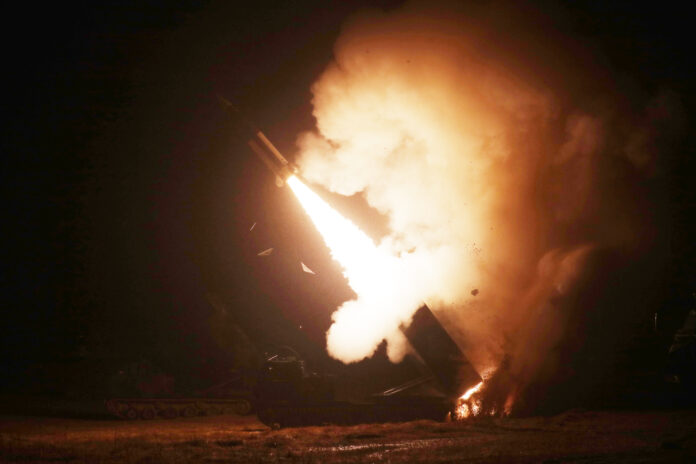Senior Russian officials have slammed President Joe Biden’s administration for greenlighting Ukraine’s use of US-supplied long-range missiles to strike targets inside Russia.
The move, announced in the waning days of Biden’s presidency and nearing the 1,000th day of the war in Ukraine, has drawn apocalyptic warnings from Russian lawmakers and further escalated global tensions.
Russian Politicians React with Fury
“This is a very big step towards the beginning of the Third World War,” declared Vladimir Dzhabarov, a loyalist to Russian President Vladimir Putin and deputy chairman of the upper house foreign affairs committee. He criticized Biden as a “departing old man” acting irresponsibly in his final weeks in office.
Leonid Slutsky, leader of the hardline Liberal-Democratic Party, accused Biden of attempting to end his presidency as “Bloody Joe,” claiming the decision signified direct US involvement in the conflict. “This will inevitably entail the harshest response from Russia,” he warned.
Russian senator Andrey Klishas echoed these sentiments, stating the escalation could lead to Ukraine losing its statehood entirely. Meanwhile, Putin has yet to comment directly, though he previously warned that such attacks on Russian territory would mark the West as active participants in the war.
Biden’s Policy Shift and Zelenskyy’s Push
For months, Ukrainian President Volodymyr Zelenskyy had urged Biden to permit long-range strikes deep into Russian territory, arguing that the ban hampered Ukraine’s ability to counter Russian aggression. Following Biden’s apparent approval, Ukraine is expected to use Army Tactical Missile Systems (ATACMS) to target Russian positions in the coming days, with strikes likely to focus on the Kursk region.
Zelensky, commenting on the policy shift, stated, “The missiles will speak for themselves,” as the White House remains tight-lipped about the decision.
Global Responses and Criticism
The decision has stirred alarm among NATO allies. British and French officials are reportedly reconsidering their positions on providing Ukraine with long-range weapons such as Storm Shadow and SCALP missiles, though concerns over escalation remain high.
In the US, Biden’s move has been met with backlash from supporters of President-elect Donald Trump. Donald Trump Jr. accused the administration of rushing into World War III to sabotage his father’s incoming presidency. Trump himself has pledged to de-escalate the conflict and negotiate peace.
Prominent Trump donor David Sacks suggested Biden’s actions were deliberately intended to leave Trump with a dire situation, stating, “President Trump won a clear mandate to end the war. So what does Biden do? Massively escalate it.”
Russia’s Own Escalation and the Role of North Korea
The escalation comes amid reports of North Korea deploying up to 12,000 troops to assist Russia in reclaiming territories lost to Ukraine earlier this year. North Korea has also supplied significant munitions to replenish Russia’s dwindling stockpiles.
Biden’s decision to allow Ukraine to strike inside Russia is partly seen as a message to North Korean leader Kim Jong Un to cease his support for Putin’s war efforts. However, this development risks drawing the conflict into a broader geopolitical confrontation.
The Path Ahead
With Biden’s presidency ending in weeks, the stakes in Ukraine are higher than ever. The introduction of long-range strikes could bolster Ukraine’s position but also risks significant retaliation from Russia. As Trump prepares to assume office, the world watches closely to see whether his promised peace efforts will materialize or if the war’s trajectory will further spiral out of control.
Amid the chaos, NATO continues to bolster defenses, and European leaders like German Chancellor Olaf Scholz attempt to engage Putin in peace talks, though such efforts remain fragile. The next weeks will likely be pivotal in determining the future of this escalating conflict.


